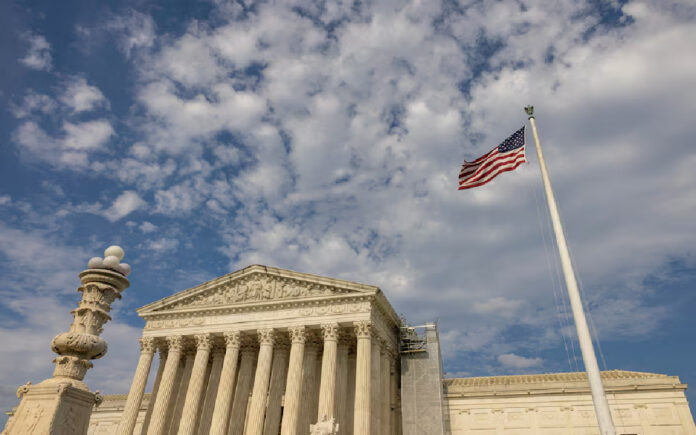Washington: The U.S. Supreme Court’s conservative majority has significantly narrowed federal regulatory powers this term, reinforcing its pivotal role in efforts to reduce the influence of the “administrative state”. Amidst a flurry of rulings, the court has curtailed the government’s ability to regulate areas such as stock trading and pollution, while avoiding major decisions on abortion and gun rights ahead of the upcoming presidential election.
The court’s latest major ruling, issued on Friday with six conservative justices in agreement and three dissenting liberals, overturned the 1984 “Chevron deference” doctrine. This landmark decision allows courts more leeway to scrutinize federal agency regulations, potentially impacting areas like air and water quality, food safety, and investor protections.
Also Read | US Rapper Kanye West Visits Moscow, Confirms Russian Media Reports
In another significant move, the conservative bloc declared unconstitutional SEC in-house fraud penalties, arguing they violate the Seventh Amendment’s jury trial right. This decision could hamper other agencies’ enforcement efforts across various regulatory domains.
Legal experts have noted the court’s persistent efforts to limit administrative agency power, citing previous decisions on environmental regulations and adjudication practices. This trend has prompted debates among scholars about the long-term implications for federal regulatory oversight.
Also Read | Spanish Police Conclude Search for British Teenager Jay Slater in Tenerife
While the court declined to expand gun rights or further restrict abortion access in specific cases this term, observers anticipate these issues could resurface in future sessions. The court’s reluctance to broaden Second Amendment protections and its handling of abortion-related challenges reflect a nuanced approach among conservative justices.
Looking ahead, the court faces contentious cases involving gender-affirming medical care for transgender minors and challenges to federal firearm regulations. These upcoming decisions are poised to shape legal and policy landscapes in critical areas of social and regulatory policy.



